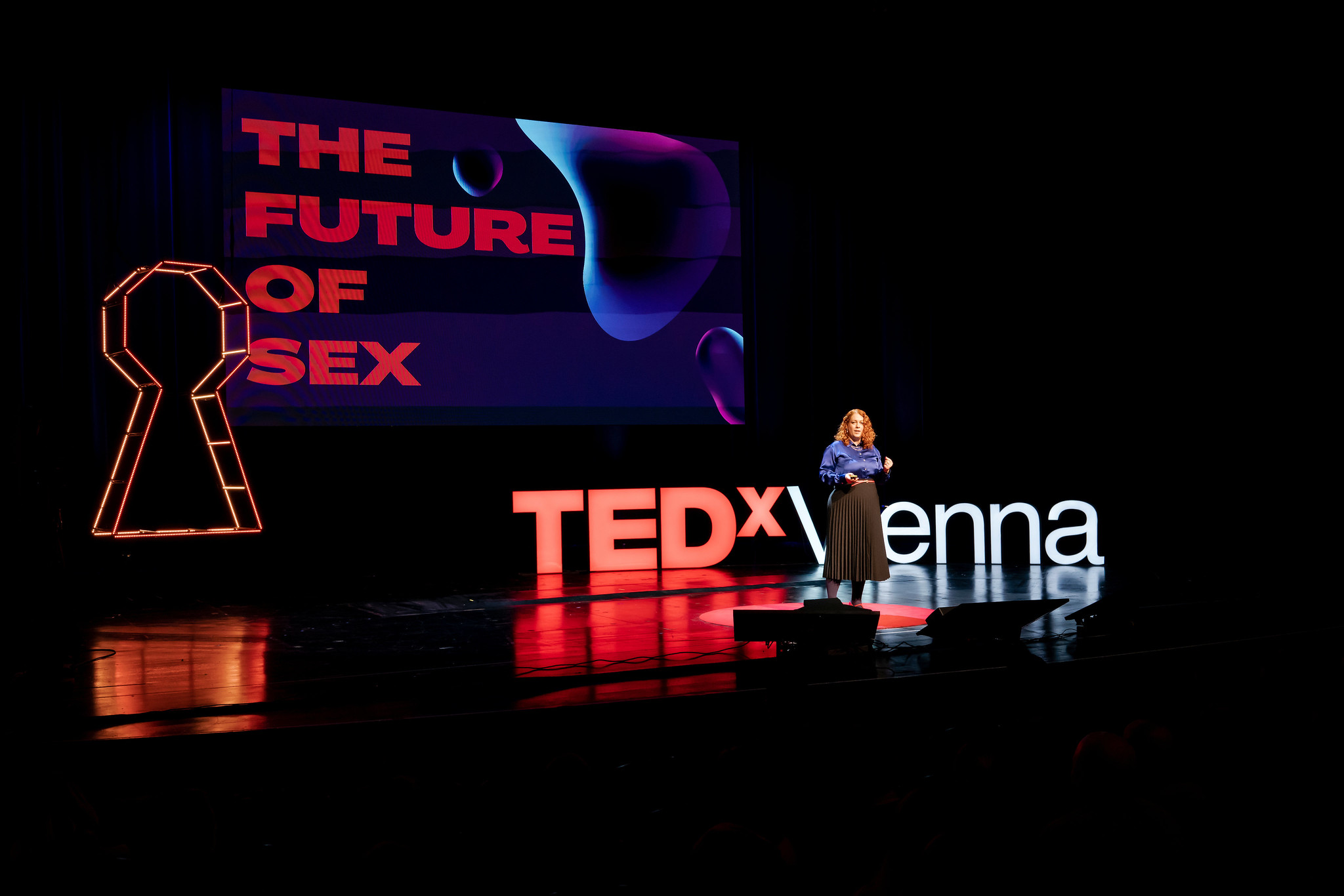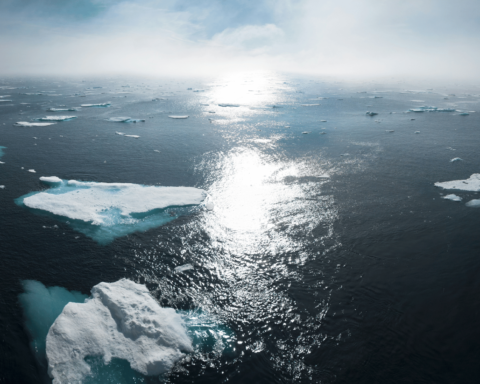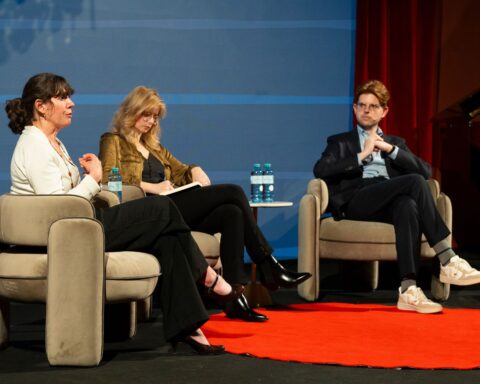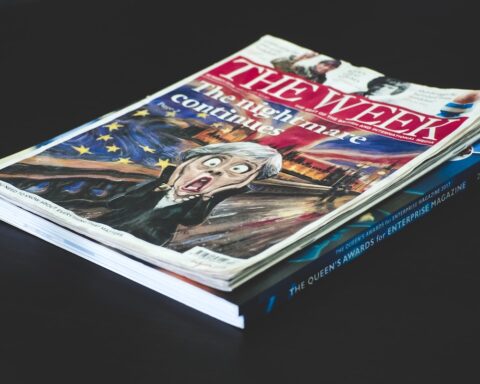Porn, intercourse, and self-satisfaction are present in everyday life. You see it and even do it. We see bodies (often naked or almost naked) in films, advertisements, music clips, magazines. Most likely, you know what porn is and even have watched it.
However, there are still a lot of taboos around these topics. The stigmatization of sex and everything around it can lead to different problems: starting with having unrealistic expectations and depressions from seeing unrealistic bodies that become beauty standards to having problems with ones own sexuality and sex life.
Jasmin Hagendorfer tries to fight these stigmas and aims to show something except the “heteronormative mainstream porn”. She is a Vienna-based artist, writer, curator, and producer. Jasmin is the creative director of the Porn Film Festival Vienna and deals with post-porn politics and gender identity topics. Her talk at the TEDxVienna Untold conference tackled the important topics of sustainability and environment in…porn! Jasmin talked about: what good porn should constitute, and how it can have a positive contribution to climate change.
During our interview, we talked in-depth about porn industry, feminist porn, sexuality and social media, the importance of sex education, and how porn can challenge you (in a good way).
How did you even start having something to do with porn, how did it start?
How did I get involved in the porn stuff? A good question. I studied art at the Academy of Fine Arts. I was in a very queer and body-positive class when I studied there. At some point, I decided some of my artworks should be around porn. They should be around bodies. I felt quite uncomfortable with my own body, my own sexuality. And I thought, maybe this is a good way to get nearer to my own core or topic.
Most works I did there were about pornographic membership sites, about what kind of systems are behind them. How do they function? How do they work? It was so mysterious to me, for example how much material was still uploaded, who does this and things like that. So, I was interested in the systematic effect of it. I think this was the first time I did something with porn. And I, of course, was very much into the post-porn politics so, quite a lot of theory.
Finally, someday Gregor Schmidinger, a good friend of mine, gave me a call, and he said: “We are founding a Porn Film Festival here in Vienna. Do you want to be part of that?”
What does this Porn Film Festival mean to you? What is your aim with the festival?
I founded the Porn Film Festival together with them, and I’m the creative director of the Porn Film Festival. I think we founded it because we thought there is a need for a room, a kind of space where we can openly talk about pornography, sexuality, bodies, genders, you name it. And all of this through a pornographic lens. This sounds very poetic, but I firmly believe that spaces like this are a very entertaining way to do so. Of course, you can talk about a lot of topics.
We are surrounded by naked bodies so much. You can see naked bodies in magazines, in films, everywhere. But still, even though it is like that, there is such a big taboo around this, around bodies, especially the female body. I think that the Porn Film Festival is a good way to have a look at all of these topics, to get on with them.
We are, of course, a film festival, and it is very entertaining. And we don’t show just explicit stuff, we also show documentaries or feature films that are around the topic and are not explicit. We have talks, lectures, workshops, even exhibitions about the topic of porn and sexuality because we know that, of course, not everybody wants to watch porn with 400 or 100 people in the cinema together. Although this is quite much fun!
In the modern world of social media, is it difficult to promote your Porn Film Festival? For example on Facebook or Instagram where there are cases when a male nipple is not censored and the female one is?
Of course, it totally is! We have a very sounding name “Porn Film Festival Vienna”, which has brought a lot of difficulties because we are not allowed to advertise the festival on Facebook. For example, we got shut down on Instagram at least once. And we don’t use hashtags, especially explicit hashtags anymore. We just try to find a way around it a little bit, because there is a lot of censoring at the moment, and it has gotten worse and worse actually.
So for us, it is not that easy to promote the festival, but we have a very good crowd which looks up all the things and sees our program. With all the censorship going on, it even hit me at some point. I am the creative director of the festival, but I don’t post much about explicit stuff or write about all of this. Not so long ago, I re-shared a post of the festival saying something like “Hey people, we are searching for films, and are very happy if you can send us some stuff and we’re looking forward to curating it”. It literally said nothing more than that. There were no words about porn or sex or anything. I shared this in various groups and on my page. Suddenly, I got blocked and hidden on Facebook because they say my posts are framed as “You are offering sexual advice to somebody”. Well, I don’t think it is like that, but you see, it’s the algorithm that knows very well where to hit. As said, there is quite a lot of censorship.
Do you think that this censorship supports the whole stigma around porn, self-satisfaction and masturbation? Especially for the teens who are just finding themselves and can feel they do something wrong. Do you think these kinds of censorship add more to this problem?
Absolutely yes! I think you bring it to a very good topic when we look at teenagers or young adults.
I’m from another generation. I talked about it today, about DVDs and celluloid, but, of course, young people now grow up with the Internet. And porn is, as I said today, a huge part of it. Almost 30% of the Internet content is porn-related, so young people watch it. This is where they try to figure out what sexuality is.
It is not a bad thing that they do this, just the act of doing this. But it is very critical and crucial that nobody talks to them about that. Parents should talk to their kids about such things. Yet not all parents feel very comfortable with these conversations: it is cool, but we don’t want to talk about porn and porn consumption, what these kinds of images or, in general, film images mean.
I think it would be a very nice way to show different aspects of the way we consume technology in general. This is not only about watching porn. Schools should talk about what it means to use Instagram or whatever platform you name, it’s the same.
So, there should be some kind of sex education at schools that will not be stigmatized?
Yes, absolutely!
Today, you talked about heteronormative mainstream porn. Do you think that people, especially digital natives, who have grown up to teens and have only got this kind of “boring, normal porn”, may get an unrealistic image of sex and bodies, which can influence their sex life in the future?
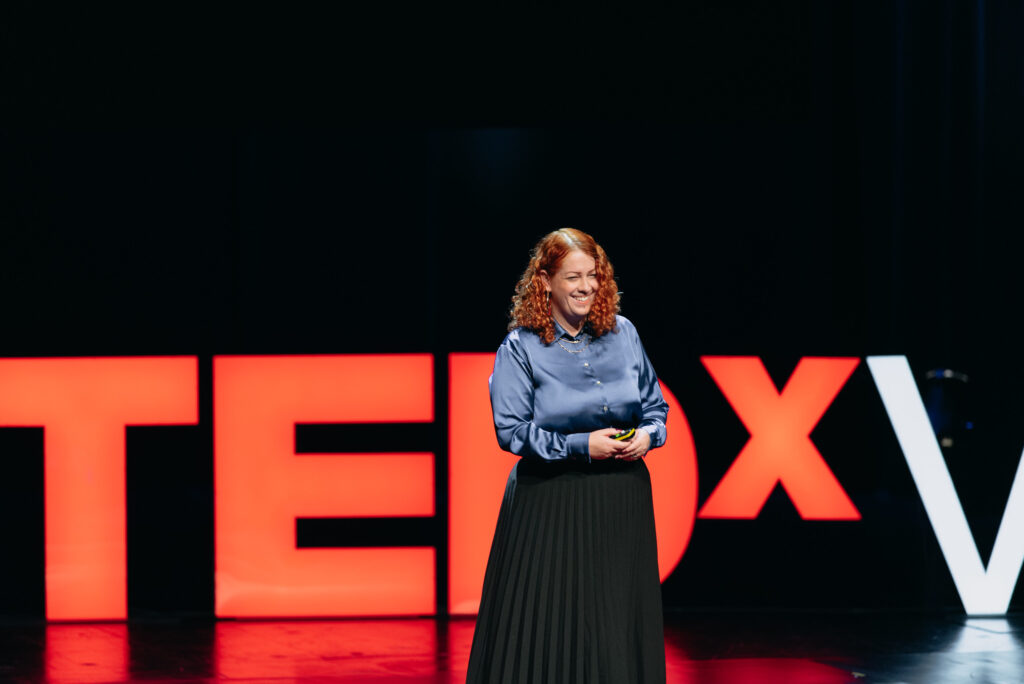
Talking for all the people is never good. I think that there are some exceptions. But in my opinion, mainly, when you only see stuff like that, you start to normalize it. You think that it is normal that bodies look the way they look in porn, that everybody has a very big, you know what I mean, that female bodies look a certain way.
But sex itself is an actor in a certain way because porns are usually small clips, up to maybe 20 minutes. They focus on something. There is nothing told about what happens beforehand or afterwards. I think, what is totally missing in, what I always frame as, boring heteronormative mainstream porn is diversity.
Diversity not only means queer, gay or lesbian stuff is missing. But this also means that a diverse picture of bodies is missing. When it, for example, comes to age or body types, such things are missing. People don’t get a real image of what we can be.
You were talking about ethical porn. During your talk, you briefly explained how it should be and what it is about. Could you also tell a bit more specifically about feminist porn? What does it mean and where to find it?
That’s a very good question. Feminist porn has almost the same approach as ethical porn. There should be a fair payment, precise agreements on what is happening. There should be, of course, transparency about what happens to the material. All the things that you can tell about ethical fair trade porn are actually feminist porn productions too.
People don’t get a real image of what we can be.
But, additionally to that, in my opinion, feminist porn production focuses really on the lust of women*. And the female* lust is centered. It is not just a sideshow or a side comment. Feminist production can also be about a lot of female* people being within the production, about the feminist effect of female* people working on that.
I think this is a good feminist approach to porn, that you do not work with patriarchal structures again, also on set.
You must have seen a lot of porn. Have you seen something that you would describe as bad porn, or do you think something like that does not exist?
As I am the creative director of the festival, this also means that I’m doing quite a lot of programming and I see every single submission to the festival. So hey, if someone wants to submit something, everybody is welcomed, but I will see it! (laughs).
Of course, people in the first one or two years submitted quite a lot of stuff that was very heteronormative, very anti-feminist, typical mainstream. This is what we don’t want to show at the festival, as we want to show alternatives. There is so much more out there.
What is totally missing in “boring heteronormative mainstream” porn is diversity.
But people did that because our system of submission functions with an open call on a platform where you can submit something. There is a lot of material that goes in, but we also hand-select films, especially when it comes to fiction films or documentaries. With all the short porn, there are quite a lot of things you can see. And it also challenges your own borders or horizons consistently. Within these around five years [of the festival], I have seen so much stuff that really challenged me personally, especially when it comes to bloody stuff or things with knives and needles, or BDSM kind of stuff. This also will change my view on all of this. The more you see. But it is not only about seeing, Porn Film Festival is more about experiencing.
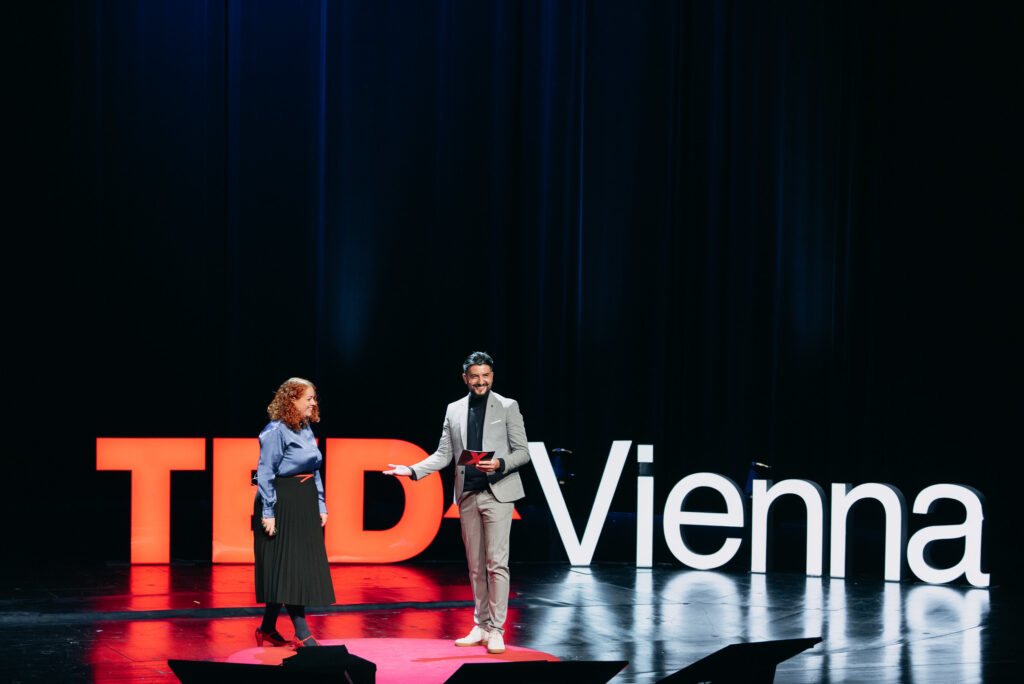
How we do the Porn Film Festival is actually inviting quite a lot of filmmakers, actors, producers, people on set. The reason is that after the screenings we want to give the audience a chance to have Q&As to ask questions about the films, like why did you do it this way? What is feminist for you in this production? This helps people to get an idea of how this works.
Since the beginning of your Porn Film Festival, have you witnessed that people’s mindset and attitude towards porn has changed, evolved?
Yes! First of all, within myself. I really learned quite a lot about myself from seeing my own body and perceiving me getting older, but, of course, still having sexuality. It showed me a lot and changed a lot.
I think this is so for all of the people in the team because we work intensely on the festival. We have a lot of conversations before the festival where we talk about very intimate topics, about very private stuff, so this changes quite a lot of things.
But there are also changes within the audience. So many people come up to me and say: “Wow, that was really a great film. I’ve never thought about this beforehand.”
Or we show things which we call the “the political porn shorts”, videos with some kinds of messages inside. And people are very positive sometimes about what this all can be, how artsy, experimental, how political, how beautifully done, how distorting porn can be. We like to challenge our audience.
Would you like to add something? Was something left untold?
One thing I want to tell your readers about the Porn Film Festival is that each and every year we have kind of a topic. In the first year, we started with a question that for us in the team was not so easy to answer. We took it as kind of a motto for the festival. It was called “What is porn?” because it seems easy to answer, but it is totally not. We thought it was a good way to give it back to the audience and see what they can take out of it, from visiting the festival and talking to producers and filmmakers. The second year, we had “What is shame?”, because we think these topics are closely connected. The third year was “What is sex?”.
There is always an overall topic, but additionally, to that, we always care about things that are happening right now. This is also how I came to this TEDxVienna talk now and why I am talking about porn and sustainability. Last year we started a porn short series called “Climate change porn shorts”. We thought that this was a really weird idea but extremely interesting. So we made an open call, asking filmmakers: Do you have something on that?
We are very political, very activist persons. Me and Yavuz Kurtulmus, who is the festival director, thought: “We go to Friday for Future demos and we know that our earth is in crisis, so how do we actually care about this? And how can we show this inside of the Porn Film Festival?” We try to think about topics that affect us all, and how to transform them within the Porn Film Festival.
Watch Jasmin’s full TEDxVienna talk “How good porn can save the planet”:
Cover Image: © Gavin Gough

